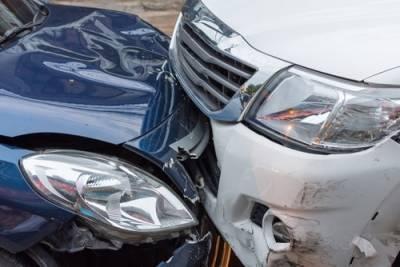
 Spring has finally reached the American Midwest, bringing with it the promise of new beginnings. Leaves are reemerging on trees, the grass is turning green once again, and animals are returning from their winter retreats. Of course, springtime also means seasonal changes in the weather, including increased rain and warming temperatures. The warming pattern, however, is often inconsistent and rapid changes in temperature and humidity levels can lead to the development of fog around area roadways. Fog, of course, can drastically reduce driver visibility and contributes to hundreds—if not thousands—of traffic accidents each year.
Spring has finally reached the American Midwest, bringing with it the promise of new beginnings. Leaves are reemerging on trees, the grass is turning green once again, and animals are returning from their winter retreats. Of course, springtime also means seasonal changes in the weather, including increased rain and warming temperatures. The warming pattern, however, is often inconsistent and rapid changes in temperature and humidity levels can lead to the development of fog around area roadways. Fog, of course, can drastically reduce driver visibility and contributes to hundreds—if not thousands—of traffic accidents each year.
Safe Driving Tips
There is little question that heavy fog requires adjustments in driving. Motorists must always operate their vehicles in ways that are appropriate for the weather conditions at that time. How you drive on a clear sunny day is different from how you should drive during rain, snow, or fog. To remain safe when driving in fog, be sure to:
 After your car has been towed and you have been to the doctor comes the part of an auto accident that most people hate the most: dealing with insurance. While every car accident is different, there are several common mistakes that people make when they have a car accident claim.
After your car has been towed and you have been to the doctor comes the part of an auto accident that most people hate the most: dealing with insurance. While every car accident is different, there are several common mistakes that people make when they have a car accident claim.
Not Doing Your Own Research
If the insurance company has declared your vehicle a total loss, the value of your car must be determined. The insurance company will almost always attempt to determine the value, but be wary of their estimate. The mistake many people make is to simply accept the insurance company’s value without doing their own research. An offer from the insurance company is just an offer. If you can demonstrate your car was worth more than they are offering, you may be able to get more for your car.
 Each year, approximately three million workers in the United States suffer from a work injury or illness. Some suffer only minor injuries and are eventually able to return to work. Others experience more severe injuries, such as head injuries or spinal injuries, which may leave them unable to work for an extended amount of time. The most serious may experience catastrophic injuries, permanent disability, and even death. Yet all have one thing in common: it is critical that each one knows how to effectively protect their rights.
Each year, approximately three million workers in the United States suffer from a work injury or illness. Some suffer only minor injuries and are eventually able to return to work. Others experience more severe injuries, such as head injuries or spinal injuries, which may leave them unable to work for an extended amount of time. The most serious may experience catastrophic injuries, permanent disability, and even death. Yet all have one thing in common: it is critical that each one knows how to effectively protect their rights.
The Importance of Timely Reporting
Work injuries should always be reported to your employer immediately after the injury occurs or as soon as is practical. At maximum, the injury should be reported within 45 days. If the possible injury involves exposure to radiation, the maximum time of reporting is 90 days after exposure. Any delays that extend beyond these constraints can become highly problematic and could potentially result in a denial of your claim or delay of benefits. Do not take any chances; report your injury immediately.
 With spring quickly approaching, many motorcycle riders are gearing up for rallies, runs, and good old-fashioned cruises. Sadly, the nearing season also means headlines will soon feature motorcycle crashes. The “lucky” ones will suffer injuries that will one day heal. Others will suffer serious and life-altering injuries. Still others will experience a crash that ends tragically in death.
With spring quickly approaching, many motorcycle riders are gearing up for rallies, runs, and good old-fashioned cruises. Sadly, the nearing season also means headlines will soon feature motorcycle crashes. The “lucky” ones will suffer injuries that will one day heal. Others will suffer serious and life-altering injuries. Still others will experience a crash that ends tragically in death.
What is most devastating about these crashes is that many will be the fault of another driver—a person who acted in a negligent way and, as a result, cost a family or rider a life, a limb, mobility, money, or employment. In such situations, the victim may be owed compensation, and it is important to know how to protect your rights.
Negligence Is a Common Factor in Motorcycle Accidents
Despite all the campaigns to “look twice and save a life,” the failure of a driver to see a motorcyclist or to register the rider’s presence are among the most common factors in motorcycle crashes. Another major issue and contributing factor in motorcycle accidents is a driver’s failure to yield when the motorcyclist has the right of way. An intersection where the motorcyclist is turning left is the most common situation in which this issue occurs, but it can also happen when the motorcycle is on a straightaway and the other driver must enter the motorcyclist’s path to merge into traffic.
 In any Illinois personal injury case—a car accident, a workplace mishap, or a bicyclist or motorcyclist injury crash—there is one person who is repeatedly made a focal point of the injured victim’s case: the “reasonable person.” The victim’s entire case for compensation often rests on what this “reasonable person” would have done in the same situation. If a judge or jury believes the allegedly negligent defendant acted in the same manner as the reasonable person would have acted, then the injury victim’s case will fail. Conversely, if the defendant is determined to have behaved in a manner at odds with the how the reasonable person would have behaved, then the defendant will be found to have acted negligently and may be held responsible for the injured plaintiff’s losses.
In any Illinois personal injury case—a car accident, a workplace mishap, or a bicyclist or motorcyclist injury crash—there is one person who is repeatedly made a focal point of the injured victim’s case: the “reasonable person.” The victim’s entire case for compensation often rests on what this “reasonable person” would have done in the same situation. If a judge or jury believes the allegedly negligent defendant acted in the same manner as the reasonable person would have acted, then the injury victim’s case will fail. Conversely, if the defendant is determined to have behaved in a manner at odds with the how the reasonable person would have behaved, then the defendant will be found to have acted negligently and may be held responsible for the injured plaintiff’s losses.
Characteristics of the Reasonable Person
 The media often portrays workers’ compensation fraud as one-sided. The most common scenario reported is that of the employee who commits fraud by faking an injury to get benefits that they do not deserve. The reality is that less than 2 percent of workers’ compensation claims are fraudulent, with some states reporting that fraud is only evident in one-sixth of a percent of cases according to recent studies. Unfortunately, the same cannot be said for employer fraud. If you have been denied workers’ compensation, contact an experienced Illinois workers’ compensation attorney today for assistance.
The media often portrays workers’ compensation fraud as one-sided. The most common scenario reported is that of the employee who commits fraud by faking an injury to get benefits that they do not deserve. The reality is that less than 2 percent of workers’ compensation claims are fraudulent, with some states reporting that fraud is only evident in one-sixth of a percent of cases according to recent studies. Unfortunately, the same cannot be said for employer fraud. If you have been denied workers’ compensation, contact an experienced Illinois workers’ compensation attorney today for assistance.
The Root of the Workers’ Compensation Fraud Problem
It makes sense that the blame has been put on employees because they, as a group, do not have the resources to refute these false allegations. Employee fraud has been the focus of state workers’ compensation reforms that take away benefits for injured workers, making it easier for employers and insurance companies to deny benefits and increase their profit margins. Fraud, however, is more prevalent at the employer level than at the employee level. In fact, studies have shown that over 13 percent of employers contacted did not even have the required workers’ compensation insurance. Furthermore, a study performed by Texas Mutual Insurance Company discovered that employer fraud costs insurance companies nearly 18 times more than employee fraud. Fraud committed by the insurance companies themselves is also generally a larger problem than employee workers’ compensation fraud as well.
 The trucking industry transports goods across the country and generates billions of dollars in revenue each year. Large trucks, however, can also cause a great deal of harm to other drivers and passengers on the road. In fact, estimates from the Federal Motor Carrier Safety Administration (FMCSA) show that more than 1,000 truck crashes occur each year. Such accidents often involve other vehicles, of course, leading to the thousands of injuries and hundreds of tragic deaths. Why do so many truck accidents occur happen, and what can victims do to ensure they are compensated for their losses?
The trucking industry transports goods across the country and generates billions of dollars in revenue each year. Large trucks, however, can also cause a great deal of harm to other drivers and passengers on the road. In fact, estimates from the Federal Motor Carrier Safety Administration (FMCSA) show that more than 1,000 truck crashes occur each year. Such accidents often involve other vehicles, of course, leading to the thousands of injuries and hundreds of tragic deaths. Why do so many truck accidents occur happen, and what can victims do to ensure they are compensated for their losses?
Most Common Causes of Truck Accidents
While there are many potential reasons that a truck accident may occur, many are related to driver fatigue, alcohol or drug use, and speeding. In fact, data from the FMCSA shows these as the most common causes of truck crashes – nearly 90 percent of them, to be more specific. Other factors, such as those pertaining to weather and road conditions, vehicle maintenance, and other critical reasons accounted for just 13 percent of all serious or fatal truck accidents in a recent study.
 Over the last several years, rideshare services like Uber have offered unprecedented competition to taxicabs and other forms of public transportation. Of course, the rise of ridesharing has not been without controversy as many believe that any type of transportation should be subject to strict regulations to ensure passenger safety. Uber’s contracting practices have also been the focus of public scrutiny, yet thousands—if not millions—of riders continue to use the service every day in cities throughout the world. Sometimes, however, accidents do happen, and when they do, it is important to know your rights.
Over the last several years, rideshare services like Uber have offered unprecedented competition to taxicabs and other forms of public transportation. Of course, the rise of ridesharing has not been without controversy as many believe that any type of transportation should be subject to strict regulations to ensure passenger safety. Uber’s contracting practices have also been the focus of public scrutiny, yet thousands—if not millions—of riders continue to use the service every day in cities throughout the world. Sometimes, however, accidents do happen, and when they do, it is important to know your rights.
Police and Uber Collide
Even the most careful drivers cannot prevent every accident. Such was the case for an Uber driver this week when he unwittingly entered a police chase on West Roosevelt Road. According to news reports, Chicago police tried to pull over an SUV for a traffic violation in Lawndale when the SUV sped away, prompting the police to give chase. The pursuit continued into the University Village/Little Italy neighborhood. The police car collided with a vehicle being driven by an Uber driver who was transporting a passenger at the time of the crash.
 Typically, accidents that receive compensation for a head injury are those that result in concussion, but is this truly the baseline for trauma? A recent study on young football players suggest it may not be. In fact, even players who never received a concussion diagnosis had subtle changes to their brains. This suggests that head injuries in all types of accidents, including those sustained in auto accidents, may deserve a closer look when deciding whether a victim may be owed compensatory damages.
Typically, accidents that receive compensation for a head injury are those that result in concussion, but is this truly the baseline for trauma? A recent study on young football players suggest it may not be. In fact, even players who never received a concussion diagnosis had subtle changes to their brains. This suggests that head injuries in all types of accidents, including those sustained in auto accidents, may deserve a closer look when deciding whether a victim may be owed compensatory damages.
About the Study
Conducted by Wake Forest Baptist Medical Center, the study examined a small sampling of young football players – just 25 of them, all of whom were between the ages of eight and 13. Images of their brains were taken prior to the start of the football season and then again at the end. The team also installed sensors into their helmets to record data on the frequency of head impact. What they found was that, even among those that had not received a concussion during the season, slight and subtle changes had occurred within the brain over the course of the season.
 Over the years, many states have become safer for workers. Safety standards have increased, exposure to toxic and cancer-causing materials has decreased, and better worker education have resulted in fewer severe injuries and fatalities. In fact, the country as a whole, including Illinois, has come a long way from past decades. However, Illinois has been slipping as of late. According to the Insurance Journal, the Occupational Safety and Health Administration has reported a 28 percent increase in worker fatalities since 2013. In 2016, alone, at least 36 Illinois workers were killed on the job. If you were injured while working or a family member lost their life in a work-related accident or resulting illness, contact a skilled attorney today for immediate assistance.
Over the years, many states have become safer for workers. Safety standards have increased, exposure to toxic and cancer-causing materials has decreased, and better worker education have resulted in fewer severe injuries and fatalities. In fact, the country as a whole, including Illinois, has come a long way from past decades. However, Illinois has been slipping as of late. According to the Insurance Journal, the Occupational Safety and Health Administration has reported a 28 percent increase in worker fatalities since 2013. In 2016, alone, at least 36 Illinois workers were killed on the job. If you were injured while working or a family member lost their life in a work-related accident or resulting illness, contact a skilled attorney today for immediate assistance.
Struck-by Hazards and Falls
Those at considerable risk of fatal injury are construction workers. Being struck by an object or falling are the two largest hazards for construction workers. According to the Center for Construction Research and Training, falls accounted for 33.3 percent of construction worker fatalities and being hit by an object accounted for 17.6 percent of fatalities. Transportation accounted for 26 percent, while “exposure” accounted for 15.7 percent. Exposure fatalities include death by electrocution, air pressure changes, caustic and noxious substances, and temperature extremes.